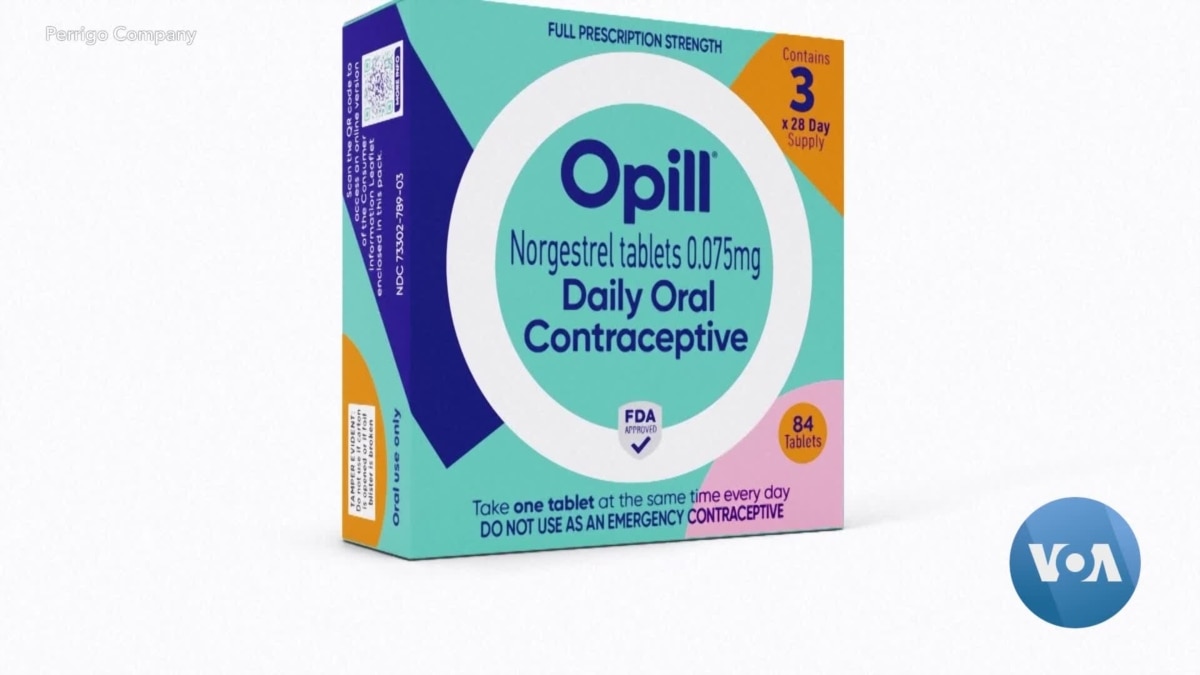Post-Roe America: How Over-the-Counter Birth Control Changes The Game

Table of Contents
Increased Access and Affordability
The cost of prescription birth control presents a significant barrier for many, particularly low-income individuals. This financial hurdle significantly impacts access to essential reproductive healthcare. Making birth control available over-the-counter can level the playing field, increasing accessibility for all socioeconomic groups.
Breaking Down Barriers to Contraception
- Reduced cost associated with doctor visits and prescriptions: The expense of regular doctor visits and prescription refills can be prohibitive. Over-the-counter birth control eliminates these costs, making it a more financially viable option for everyone.
- Increased availability in pharmacies and retail stores: Wider distribution beyond doctor's offices increases convenience and accessibility, particularly in underserved communities with limited healthcare access. This means easier access to emergency contraception, like the morning-after pill.
- Potential for government subsidies and insurance coverage to further enhance affordability: Government initiatives and insurance coverage could further reduce the cost of over-the-counter birth control, making it truly accessible to all. This would require legislative action and public support.
Convenience and Discreet Access
Over-the-counter birth control offers unparalleled convenience. No more appointments, no more potentially awkward conversations with healthcare providers.
- No need for appointments or doctor visits: This eliminates scheduling challenges and removes potential barriers for individuals facing transportation difficulties or those with busy schedules.
- Privacy in purchasing and using birth control: The ability to purchase birth control discreetly can reduce stigma and encourage open conversations about family planning. This is especially crucial for young people and those in communities where reproductive healthcare is often stigmatized.
- Reduced reliance on healthcare providers for access: This empowers individuals to take control of their reproductive health, reducing dependence on potentially limited or biased healthcare systems.
Impact on Unintended Pregnancies and Abortions
Increased access to birth control directly correlates with a decrease in unintended pregnancies, potentially reducing the need for abortions.
Preventing Unintended Pregnancies
- Studies showing the effectiveness of various over-the-counter birth control methods: Numerous studies have demonstrated the efficacy of various birth control methods, ranging from condoms to hormonal options like the pill, when used correctly. These studies highlight the potential for significant reductions in unintended pregnancies.
- Data illustrating the correlation between birth control access and lower abortion rates: Research consistently shows a strong link between increased access to contraception and reduced abortion rates. This data strengthens the argument for making birth control readily available.
- Potential impact on maternal mortality rates: Reducing unintended pregnancies through increased access to over-the-counter birth control can also lead to lower maternal mortality rates, improving overall maternal health outcomes.
The Limitations of Birth Control as an Abortion Alternative
It's crucial to acknowledge that birth control is not 100% effective. It doesn't address the complexities of unintended pregnancies that may arise despite using birth control.
- Discussion of failure rates for various birth control methods: Understanding the failure rates of different methods is essential for informed decision-making. Comprehensive sex education plays a vital role in this understanding.
- The importance of proper usage and understanding of limitations: Effective birth control relies on correct and consistent use. Education on proper use and understanding limitations are paramount.
- The need for continued support and access to other reproductive healthcare services: Even with over-the-counter birth control, access to comprehensive reproductive healthcare, including abortion care for those who need it, is crucial.
Potential Challenges and Concerns
While the benefits are significant, challenges remain. Misinformation and political obstacles present hurdles to the widespread adoption of over-the-counter birth control.
Misinformation and Improper Use
The spread of misinformation online poses a significant threat. Accurate information is vital to ensure safe and effective use.
- The need for improved public health campaigns and education: Targeted public health campaigns can counteract misinformation and provide accurate information about different birth control methods and their proper use.
- The role of healthcare providers in providing accurate information: Healthcare providers are crucial in ensuring patients receive accurate and unbiased information.
- The risks associated with incorrect use of different birth control methods: Incorrect use can lead to unintended pregnancies or other health complications. Clear instructions and access to reliable information are critical.
Political and Legal Obstacles
Political and legal challenges to making birth control over-the-counter are anticipated. Lobbying efforts and state-level regulations could restrict access.
- Ongoing debates about access to reproductive healthcare: The political landscape surrounding reproductive healthcare remains highly contentious, posing challenges to expanding access.
- Potential for legislative restrictions on birth control access: State-level laws could impede the availability of over-the-counter birth control, undermining efforts to improve access.
- The role of advocacy groups in protecting reproductive rights: Advocacy groups play a critical role in promoting access to reproductive healthcare, including advocating for policies that support over-the-counter birth control.
Conclusion
The shift towards over-the-counter birth control in a post-Roe America presents a complex scenario with significant implications. While increased access and affordability promise to reduce unintended pregnancies and empower women, challenges related to misinformation, proper usage, and political hurdles remain. Ensuring widespread access to accurate information, alongside continued advocacy for reproductive rights, is crucial to maximizing the positive impact of over-the-counter birth control. The future of reproductive healthcare in America hinges on comprehensive strategies that combine accessible, affordable over-the-counter birth control with broader access to reproductive services. Let's work together to ensure every woman has the power to choose her own path.

Featured Posts
-
 Todays Stock Market Dow Futures Chinas Economic Stimulus And Trade Uncertainty
Apr 26, 2025
Todays Stock Market Dow Futures Chinas Economic Stimulus And Trade Uncertainty
Apr 26, 2025 -
 Post Roe America How Over The Counter Birth Control Changes The Game
Apr 26, 2025
Post Roe America How Over The Counter Birth Control Changes The Game
Apr 26, 2025 -
 5 Dos And Don Ts Succeeding In The Private Credit Job Market
Apr 26, 2025
5 Dos And Don Ts Succeeding In The Private Credit Job Market
Apr 26, 2025 -
 The Growing Trend Of Betting On California Wildfires La And Beyond
Apr 26, 2025
The Growing Trend Of Betting On California Wildfires La And Beyond
Apr 26, 2025 -
 Are Chinese Cars The Future A Comprehensive Analysis
Apr 26, 2025
Are Chinese Cars The Future A Comprehensive Analysis
Apr 26, 2025
